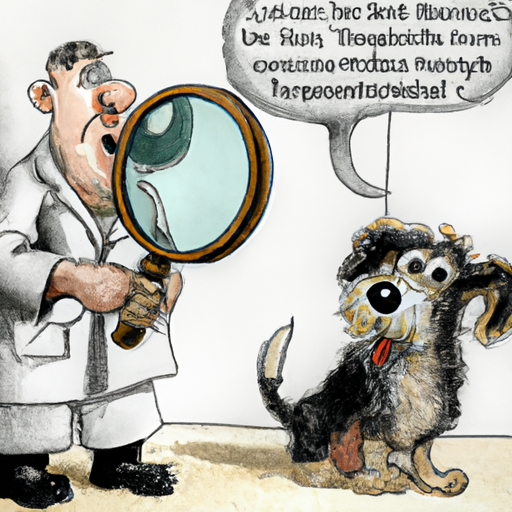As a dog owner, the health and wellbeing of your furry friend is of utmost importance. Among the many health concerns that pets face, worms are a common issue. Canine worms are internal parasites that can cause a variety of health problems if not treated promptly. In this comprehensive guide, we’ll explore the key factors that contribute to dogs getting worms, including the types of worms dogs commonly get and the signs to watch out for.
Table of Contents
- Common Types of Worms in Dogs
- How Dogs Get Worms
- Symptoms of Worms in Dogs
- Treatment and Prevention
- Frequently Asked Questions
Key Takeaways:
- Dogs can get worms through various ways, such as through infected soil, contaminated water, fleas, or direct contact with another infected animal.
- There are several types of worms that dogs can get, including heartworms, roundworms, tapeworms, hookworms, and whipworms.
- Symptoms vary depending on the type of worm, but common signs include weight loss, diarrhea, vomiting, and changes in appetite.
- Regular vet check-ups, deworming programs, and preventive measures can help keep worms at bay.
Common Types of Worms in Dogs
There are several types of worms that can infect dogs, each with its own set of symptoms and health risks.
Heartworms are spread through mosquito bites. These worms live in the heart and pulmonary arteries of infected dogs, causing heart disease and lung damage.
Roundworms are the most common worms in dogs. Puppies can get them from their mother’s milk or from infected soil.
Tapeworms are usually acquired by ingesting fleas or eating infected rodents.
Hookworms and whipworms are less common but can be contracted through contaminated soil or water.
For more detailed information, you can check out this comprehensive guide on dog worms.
How Dogs Get Worms
Understanding how dogs get worms is crucial for prevention.
-
Soil or Water Contamination: Dogs love to explore and often come into contact with infected soil or water. This is a common way for dogs to get roundworms, hookworms, and whipworms.
-
Fleas or Infected Rodents: If your dog has a flea infestation, there’s a chance they could get tapeworms. Similarly, dogs that hunt rodents can get tapeworms if the rodent is infected.
-
Mother to Puppy Transmission: Puppies can get roundworms and hookworms from their mother’s milk.
-
Mosquito Bites: Mosquitoes are carriers of heartworms. When a mosquito bites an infected dog and then bites a healthy dog, it can transmit the heartworm larvae.
For more details about how dogs get worms, you can visit Onetopdog and read articles like this and this, which offer great insights into dog health and worm prevention.
Symptoms of Worms in Dogs
Worm infestations can lead to a range of symptoms, some of which can be quite serious. Here are some signs to watch out for:
- Weight loss
- Diarrhea or vomiting
- Changes in appetite
- A dull or rough coat
- Visible worms in your dog’s feces or vomit
If you notice any of these symptoms, it’s important to take your dog to the vet immediately.
Treatment and Prevention
The good news is that most worm infestations can be treated effectively with deworming medication. Your vet will recommend a treatment plan based on the type of worm, your dog’s age, and overall health.
Prevention is always better than cure. Regular vet check-ups, keeping your dog’s living area clean, using flea and tick preventive treatment, and not letting your dog eat rodents or wildlife can help prevent worm infestations.
For more information on worm prevention and treatment, you can check out this helpful guide.
Frequently Asked Questions
-
Can I get worms from my dog?
Yes, some worms like roundworms and hookworms can be transmitted from dogs to humans. -
How often should I deworm my dog?
This varies depending on your dog’s lifestyle and risk factors. Your vet can provide the best advice. -
Can all worms be seen in dog feces?
Not all worms are visible in dog feces. Some, like heartworms, live in the heart and lungs, and their presence can only be confirmed through a blood test.
In conclusion, worms in dogs are a common issue, but with knowledge and preventive measures, you can keep your furry friend healthy and happy. For more insights into dog health, don’t forget to check out Onetopdog.



